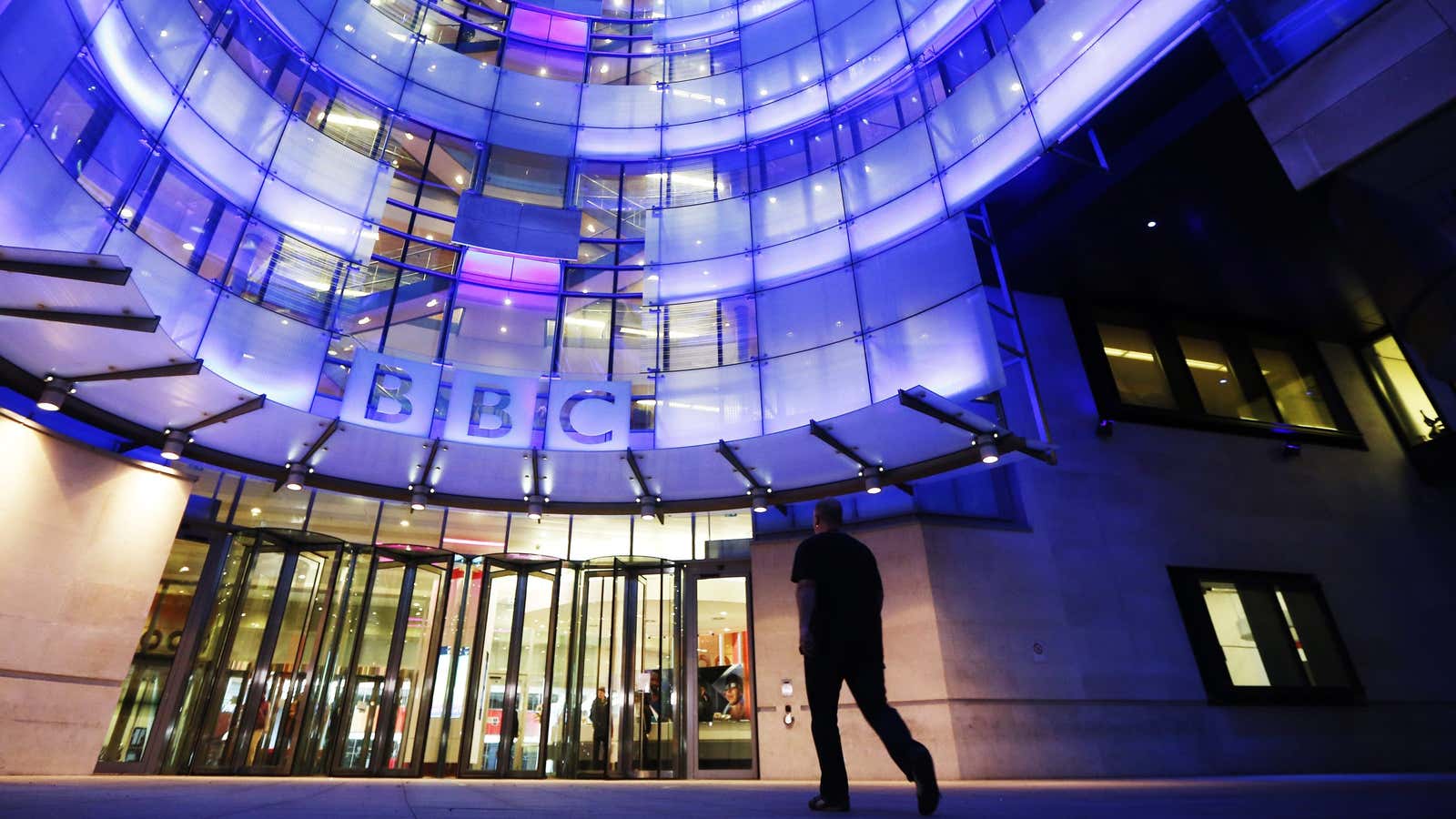The BBC is facing a major backlash, even from its own journalists, over a race row ignited by coverage of Donald Trump telling four non-white US Congresswomen to “go back” to where they came from. Trump made his controversial remarks in July.
The BBC reprimanded Naga Munchetty, an anchor of the broadcaster’s flagship morning show, for saying, live on air: “Every time I have been told, as a woman of color, to go back to where I came from, that was embedded in racism.” Munchetty, who is of Indian origin, was responding to a comment from her co-anchor, Dan Walker. Walker said he had a friend who’d also been told to “go back” from Britain, and asked Munchetty her thoughts. The BBC released a transcript of the exchange today.
A viewer complained about Munchetty’s comments, and the BBC rebuked the anchor, saying its guidelines “do not allow for journalists to…give their opinions about the individual making the remarks or their motives for doing so—in this case President Trump.”
The case highlights the difficulties of walking the fine line between reportage and opinion on sensitive matters, such as race, ethnicity, and sexual orientation, especially when polarizing politicians such as Trump make controversial remarks.
The row continues, with several prominent BBC journalists publicly criticizing the broadcaster, and a source telling Quartz that BBC managers are going from desk to desk in the newsroom, warning staff against making public comments.
Quartz has also seen an internal email that states: “People should not be tweeting anything that can be construed as an opinion—or backing an opinion—on the findings of the ECU [Editorial Complaints Unit] and Naga.”
“The BBC has got it very wrong,” said the UK’s National Union of Journalists, which has 30,000 members. Even TV personality and former tabloid editor Piers Morgan defended Munchetty.
The broader context of the row is the dearth of non-white staff in senior decision-making roles at the BBC, the world’s oldest national broadcaster. In 2001, the former head of the BBC, Greg Dyke, described it as “hideously white.”
The BBC has since made some well-publicized efforts to improve diversity, and better represent the full breadth of modern Britain. These are thought to have been less than successful.
In 2017, British lawmakers forced the BBC to disclose how much it paid its top talent, leading to the revelation that many women had lower salaries than men in equivalent roles.
